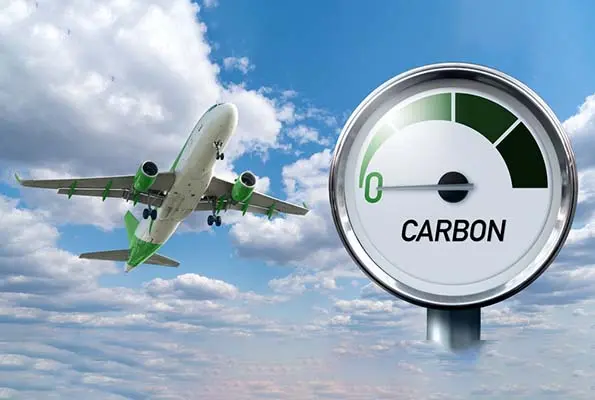Using sustainable aviation fuel (SAF), a Boeing 787 Dreamliner took off from Heathrow on November 28, 2024 and landed at New York’s JFK Airport. The world’s “first 100% SAF flight” was “a historic moment in aviation’s roadmap to decarbonisation,” according to its operator Virgin Atlantic.
It is said that this is proof of concept for the emergence of “guilt-free” flying. Regretfully, we have been here before, and the outcomes were unfavourable.
We contend that, like with the economy overall, the aviation industry’s continuous expansion is incompatible with averting runaway climate change, based on a study into how power and wealth impact the environment. There is almost no chance that the technologies created by the aviation sector will have a meaningful impact in containing climate change. Furthermore, Virgin’s most recent trial used fuels that are not appreciably more sustainable than previous ones.
Virgin began its sustainability project in the 2000s under the leadership of British business magnate Richard Branson. With great excitement, a Virgin plane from London to Amsterdam took off in 2008 using fuel partially sourced from coconut and palm oil. The project was successful in theory, but the sustainability promises were absurd.
It would have taken three million coconuts to fuel that quick flight with 100% coconut oil. There are 18,000 commercial airports in the world, and Heathrow would only be supplied for a few weeks before the entire global crop supply is exhausted. After this ridiculous attempt, Virgin abandoned coconut oil.
The most recent Virgin flight is just a 2008 replica. Governments are persuaded by smoke and mirrors that SAF will allow aviation to sustain its unrelenting growth, and in this regard, it is succeeding.
Virgin asserts that it no longer only uses crops for its new SAF and that it mixes leftovers with SAF. Wisconsin-based Virent is one of the primary suppliers for Virgin’s transatlantic voyage. Virent produces SAF by combining traditional sugars, including corn, wood, leftover cooking oil, and agricultural waste.
Any product farmed for fuel, like coconuts, extends the boundaries of agriculture further into forests and peatlands, competing with food crops and releasing significant amounts of carbon into the atmosphere.
What about the waste products, though? Reusing cooking oil must provide a sustainable solution, right? Regrettably, it appears not in an infamously uncontrolled market.
Neste, another supplier to Virgin, sources cooking oils from all around the world, including food processing facilities in California, Oregon, and Washington, as well as McDonald’s restaurants in the Netherlands. According to the US Department of Agriculture, there may be “fraudulent” activity involved in certain SAF feedstock transactions, including those from Indonesia to Neste’s refinery in Singapore.
Neste has refuted the assertion. However, there are still claims that palm oil from plantations that cause tropical deforestation is being sold as used cooking oil, even if the used cooking oil is completely genuine.
Virgin Atlantic insists that all of the SAF it uses comes from used frying oil. But it’s feared that if the aviation sector places a large bet on spent cooking oil, it could accelerate tropical logging, lead to the extinction of orangutans, and destroy countless other endangered species.
The carriers are willing to cover this additional expense. Even if the net cost might be the same, the airline can offer passengers a cheaper ticket in this fashion. And there’s an opportunity for some heartfelt marketing with that additional line item on the ticket price.
Above all, however, the charge will be used to somewhat offset the three to five times higher cost of SAF compared to normal jet fuel. When buying these biofuels.
While the recent flight of a Boeing 787 Dreamliner using SAF marked a historic moment in the aviation industry’s efforts towards decarbonisation, it also reignited debates about the true sustainability and effectiveness of such measures. Virgin Atlantic’s endeavour, though laudable in its attempt to reduce carbon emissions, raises concerns about the environmental impact and ethical implications of sourcing SAF from various feedstocks.
Moving forward, a comprehensive approach that considers the entire lifecycle of biofuels, from production to consumption, is essential. Collaboration among stakeholders, including airlines, governments, and environmental organisations, is needed to establish robust standards, promote innovation in alternative fuels, and mitigate the environmental impact of aviation.
Ultimately, while SAF represents a promising step towards reducing aviation’s carbon footprint, its widespread adoption must be guided by rigorous sustainability criteria and ethical principles to avoid repeating past mistakes and ensure a truly guilt-free future of flying.



